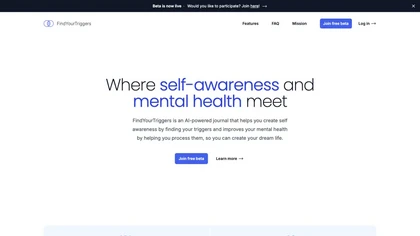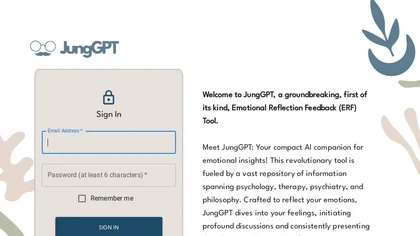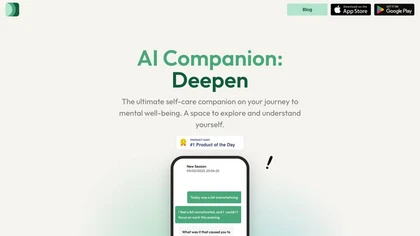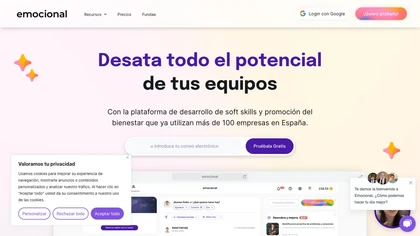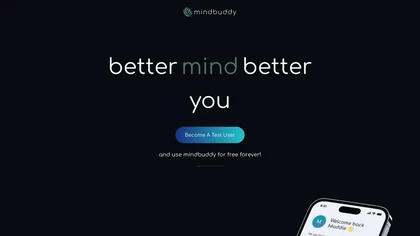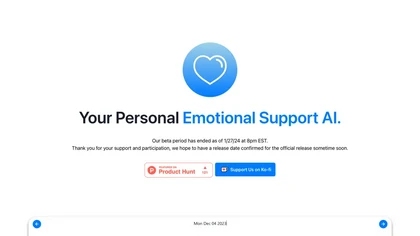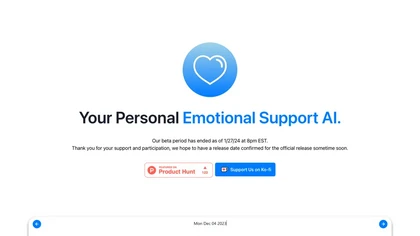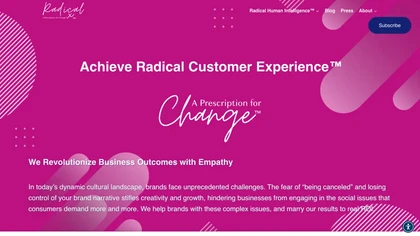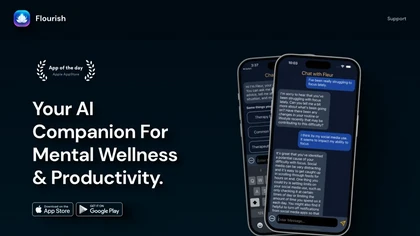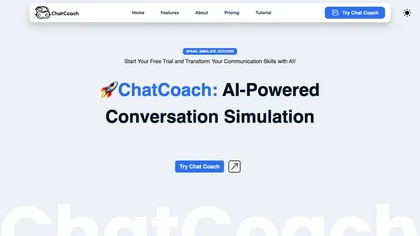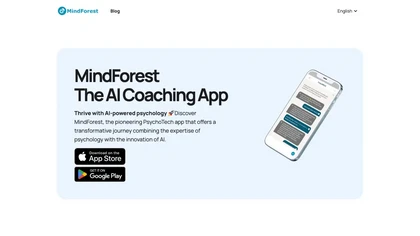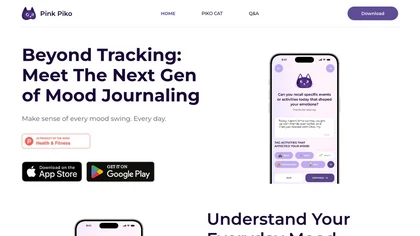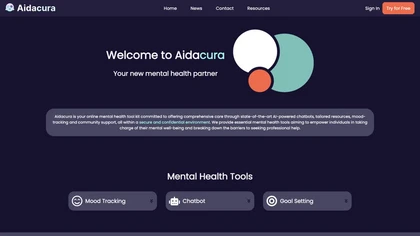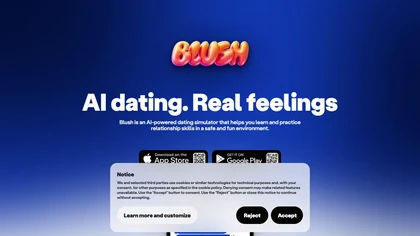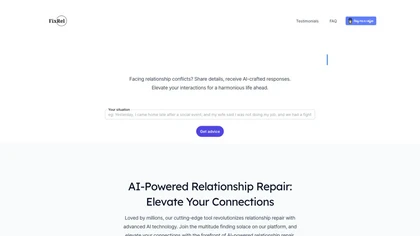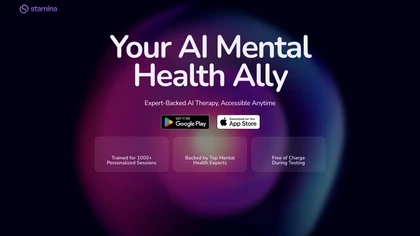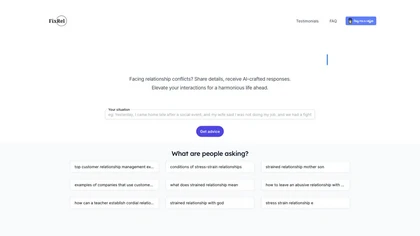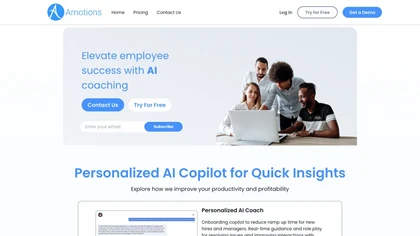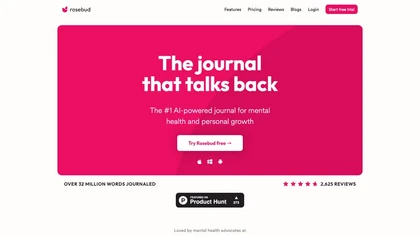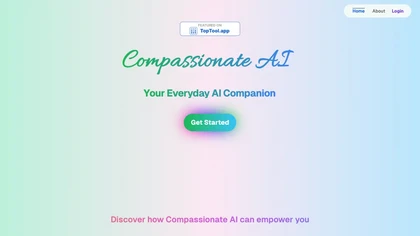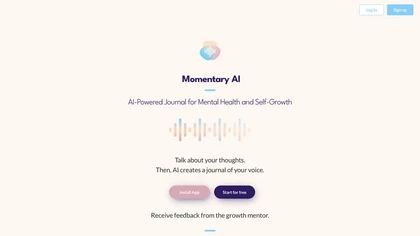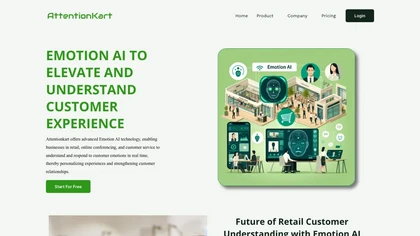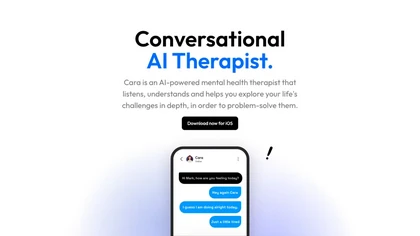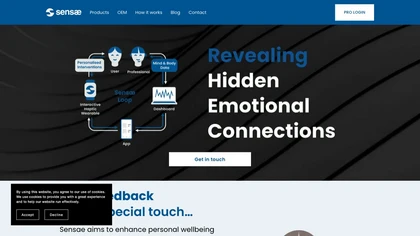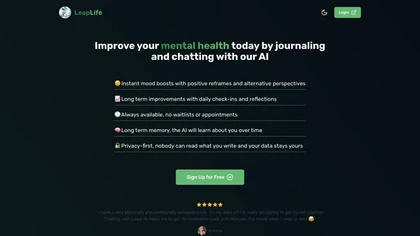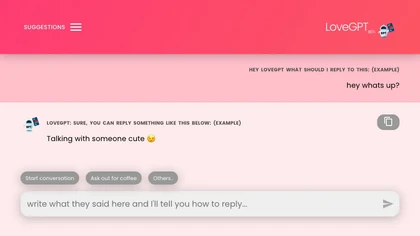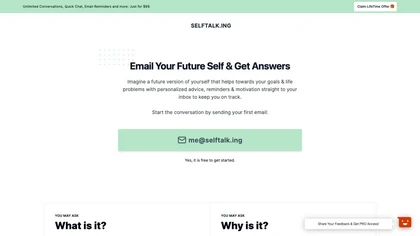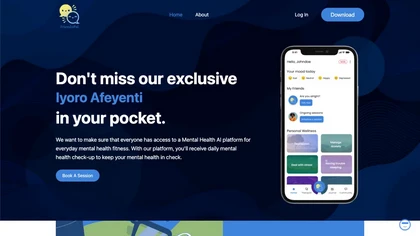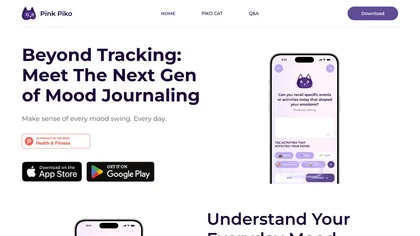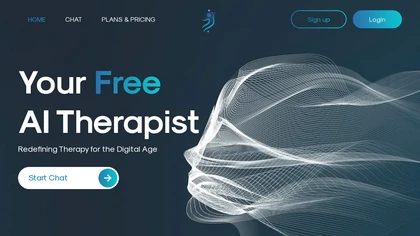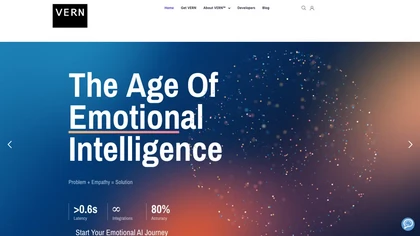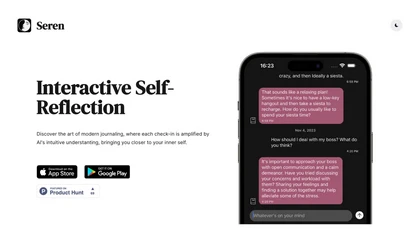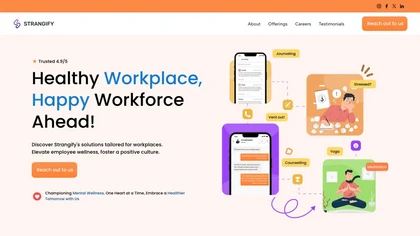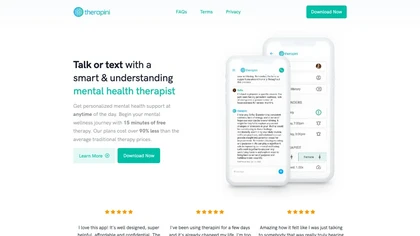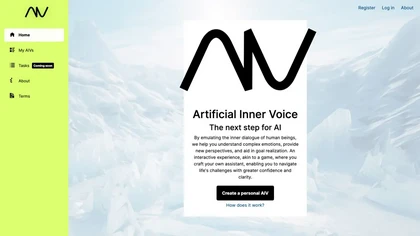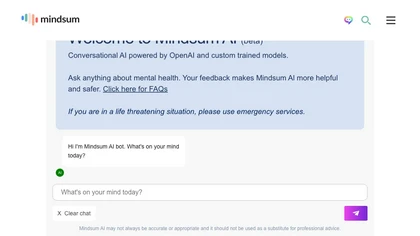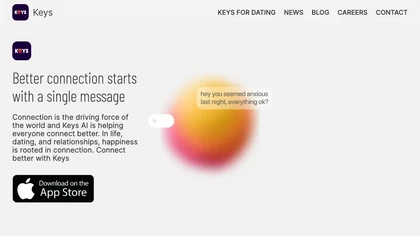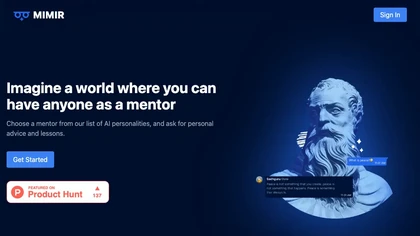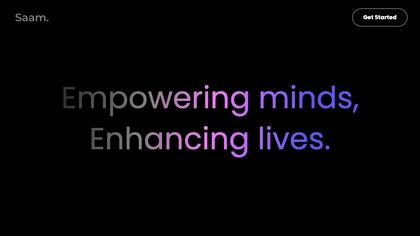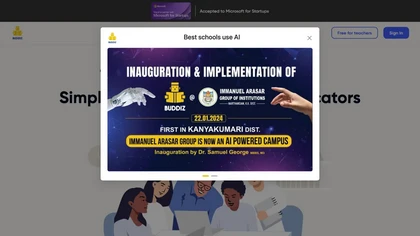AI use cases for Emotional intelligence
Generative AI can be applied in various applications for emotional intelligence. Here are some examples to explore below for inspiration with AI tools to get you started with using AI in emotional intelligence.
🛠️ 70 AI tools for Emotional intelligence
Explore a dynamic list of some of the most popular tools to get you started with various AI use cases and applications for Emotional intelligence to streamline your workflows and productivity today.
FeelGood
4.2FeelGood features
- AI-powered
- Emotion analysis
- Actionable advice
- Personalized techniques
- Support emotional well-being
HeartDialog features
- 24/7 availability
- Personalized conversations
- Privacy protection
- Context tracking
- Integration of journaling, meditation, and CBT
Clearmind features
- To-Do lists
- Mood cards
- Meditation scripts
- Chat
IX Coach features
- Goal setting
- Obstacle overcoming
- Action planning
- Social interaction understanding
- Communication improvement
FindYourTriggers features
- AI-powered journal
- Generates prompts based on user input
- Tracks user moods
- Identifies and processes behavior triggers
- Supports a structured three-step plan of assessment, planning, and implementing
JungGPT features
- Emotional reflection
- Emotional support
- Personal growth
- Self-reflection
- Therapeutic exploration
Deepen features
- Chat sessions with AI companion
- Guided conversations
- Insights dashboard
- Supports exploration and understanding of emotions
- Aids in decision-making
🔥
Create your account, save tools & get personal recommendations
Receive a weekly digest of our handpicked top tools.
Unsubscribe anytime
Emocional features
- Personality evaluation
- Soft skills evaluation
- Well-being assessment
- Personalized improvement plans
- Access to digital tools like Eva AI
Hume AI features
- Interpret emotional expressions
- Generate empathic responses
- Measure nuanced vocal modulations
- Predict outcomes based on language alone
- Interpret vocal and facial expressions with precision
mindbuddy app features
- Specially trained chatbot 'buddy'
- Specialization in cognitive behavioral therapy (CBT)
- Personalized guidance through AI
- Track mood and access past chat sessions
- Continuous learning and adaptation capabilities
MoodPen features
- Real-time reflection
- Personal growth tracking
- Automated journal reflections
- Personalized feedback and suggested actionable steps
- Multi-lingual support
Reassurance AI (Beta) features
- Interactive chatbot named Sai for guidance and advice
- Personal journal for logging thoughts and self-reflection
- Customization options for fonts, sizes, and speech voices
- Tracking of interactions with Sai and journal entries
- Subscription for updates on future releases and features
Space of mind features
- Affordable PTSD support
- Facilitated peer support
- Anonymous therapist help
- Licensed therapist-guided sessions
- Range of support spaces
EpicTopia AI features
- Life journey tracking
- AI-generated insights
- Tailored action plans
- Personalized chronicle on a timeline
- Detailed guidance
calmify.ai features
- AI-powered mental health companion
- 24/7 online support
- Personalized and empathetic assistance
- Employing evidence-based cognitive behavioral therapy (CBT) strategies
- Uses state-of-the-art large language models (LLMs)
Reassurance features
- Personal emotional support through AI chatbot
- Customization of responses with various fonts and text-to-speech options
- Maintaining a personal journal for logging thoughts and concerns
- Remembering past conversations for continuity
- Interaction tracking based on user inputs and responses
Radical Human Intelligence™ features
- 3 R methodology support
- Deep stakeholder understanding
- Human level connections
- Informed decision making
- Fostering trust and collaboration
Mynd features
- Key themes
- Emotions
- Patterns
Flourish features
- Meaningful Conversations
- Psychology-based Mental Health Assessments
- Stress Relief Tools
- Productivity Tools
- Quality Mental Health Support
ChatCoach features
- Real-life conversation simulations
- Advanced emotional analytics
- Natural language processing tools
- Lifelike simulations of various scenarios
- Personalized training and access to multiple virtual conversational partners
MindForest features
- AI-powered psychology for personal growth
- Insight Journal feature for automatic journaling
- Tailored insights and exercises based on psychological principles
- Psychometrics assessments for understanding personality facets
- Integration of psychology expertise with AI innovation
PinkPiko features
- Mood tracking
- Interactive experience
- Insightful questions
- Personalized emotional insights
- Actionable insights
Aidacura features
- AI-powered chatbots
- Tailored resources
- Mood-tracking
- Community support
- Natural language processing
Blush features
- AI-powered dating simulator
- Safe and fun environment for learning and practicing relationship skills
- Personalized guidance
- Experiment with different approaches to flirting and communication
- Engage with characters for emotional support and companionship
Fix Rel features
- AI-powered relationship assistant
- AI-crafted responses
- Accessible on various devices
- User-friendly interface
- Secure data measures
MindwellAI features
- Self-care
- Coping tools
- Journal writing
- Coaching
- Anxiety management program
Stamina AI features
- Expert-backed AI therapy tool
- Over 1000 personalized sessions
- Cognitive behavioral therapy techniques
- 24/7 availability
- Personalized support from a team of 200+ mental health professionals
FixRel features
- Personalized advice generation
- Analysis of relationship dynamics
- Insights on unmet emotional needs
- AI-crafted responses for communication
- User-friendly interface
Insightful features
- Provide personalized on-demand coaching
- Focus on specific needs
- Available anytime, anywhere
- Blog with latest insights on living a fulfilling life
- Accountability coaching to help young professionals reach full potential
AI Coach Amotions features
- Real-time guidance for role-playing, issue resolution, and customer/colleague interactions
- Personalized AI coach creation based on organization's content and context
- Learning from experts at institutions like Yale, Stanford, and Microsoft
- Enhancing skills in communication, emotional intelligence, and leadership through reflection practices and videos
- Convenient access via mobile, web, or integrations with tools like Chrome browser extension and Slack
Personalities.ME features
- Personality exploration
- Career guidance
- Relationship insights
Chat EQ features
- Research-based feedback
- Conflict resolution skills enhancement
- Insights on user's feelings
- Suggested conversation approaches
- Avoid common pitfalls in conflicts
Ponder features
- Tailoring guided meditations to emotional needs
- Personalizing meditations based on current emotions and situation
- Offering flexible meditation options
- Providing structured courses for meditation
- Adapting to support the user's self-discovery and growth journey
Rosebud features
- Daily check-ins
- Auto-tagging key insights
- Identify meaningful goals
- Track people, topics, and moods
- Emotionally-focused capabilities
Compassionate AI features
- Personalized support
- Empathetic conversations
- Evolution of interactions
- Context-aware responses
- Data privacy prioritization
Momentary features
- AI-powered journaling experience
- Voice-activated journaling
- AI-powered transcribing
- Mood categorization
- Supportive AI mentor
Amori features
- Analyzing conversations
- Providing insights into attachment styles
- Assessing communication patterns
- Identifying moments of intimacy
- Recognizing challenges faced by couples
Attentionkart features
- Emotion AI technology
- Real-time emotion analysis
- Personalized experiences
- Optimized product recommendations
- Streamlined customer feedback analysis
Heartfelt Services features
- Virtual therapists (e.g., Paul and Serene)
- Innovative approach to self-exploration and healing
- Confidentiality prioritization
- Non-judgmental space for users
- Team of dedicated therapists
Cara features
- Conversational AI therapist
- Powered by GPT
- Natural responses and advice
- Insightful and non-judgmental guidance
- Available on iOS
Sensae Loop features
- AI-driven analytics
- Haptic biofeedback
- Physiological and emotional state monitoring
- Stress assessment
- Modular and customizable solutions
Dr. FeelGood features
- Personal AI motivational coach
- Human-like understanding
- Powerful motivational capabilities
- Available 24/7
- Coaching sessions anytime needed
Journalie features
- Transcription of entries
- Automatic organization in a calendar format
- Social sharing features
- AI-generated unique pages
- Enhanced journaling experience
LeapLife features
- AI chat function
- Personalized chatting AI
- Daily journaling
- AI therapists chat
- End-to-end encryption
Love GPT
3.8Love GPT features
- Conversation starter suggestions
- Javascript enabled
- Chat interface
Selftalk.ing
4.9Selftalk.ing features
- Unlimited conversations with future self
- Quick chat interface
- Email reminders
- Personalized advice and motivation
- Access to past conversations
FriendnPal features
- virtual one-on-one chats with therapists
- supports various African languages
- booking therapy sessions online
- ASMR sounds for relaxation and stress relief
- digital journal for mood tracking
Pink Piko features
- Interactive tracking experience
- Insightful questions for emotional reflection
- AI-powered technology for interpreting mood logs
- Personalized emotional insights
- Transforms emotional data into tangible insights
Lebenmaster features
- 3-step process for goal forecasting
- Daily progress logs
- Task management functionality
- Brainstats feature
- Support for executing tasks faster and efficiently
Broken Bear features
- Listening to feelings
- Offering companionship
- Encouraging seeking professional help
- Emphasizing self-care
- Providing emotional support
Therapy with AI
4.9Therapy with AI features
- personalized therapy
- learns from conversations
- provides guidance
- effective coping strategies
- privacy and confidentiality
Moments features
- Task Prioritization
- Events and Reminders
- AI Messages Composer
CalmMind features
- Wellness assessment
- Calmmind chat
- Curated wellness programs
- Therabot
- Community support
VERN AI features
- Real-time emotion recognition
- Sub-second latency
- Predicts emotions like anger, fear, love, and sadness
- Easy-to-use API
- ML Ops solutions
Seren features
- AI-powered interactive self-reflection journaling tool
- AI chat functionalities for insightful feedback and guidance
- Delve deeper into emotions and thoughts
- Secure and private space for self-discovery
- Encrypted conversations and focus on privacy
LeeAI features
- 3d performance assistant
- Robotic life coach
- Utilizes chatgpt-4
- Data privacy
Strangify features
- Real-time crisis intervention
- Professional counseling sessions
- Supportive community of listeners and licensed counselors
- Anonymous connection for users to express thoughts and feelings
- Access to resources for mindfulness practices like yoga and meditation
Txt Your Ex features
- Replace negative words with positive ones
- Encourages healthier communication
- Provides a secure space for sharing
- Designed for personal growth
- Supports mindful communication practices
therapini features
- Personalized support and guidance
- Navigation of common therapy FAQs
- Confidential mental wellness assistance
- Communication via talk or text
- Practical and encouraging tailored advice
Artificial Inner Voice features
- Emulates inner dialogue of human beings
- Helps users understand complex emotions
- Provides new perspectives
- Functions like a game
- Serves as a personal assistant
Inner Lighthouse features
- Structured approach towards self-esteem improvement
- Variety of expertly curated journeys
- Daily 10-minute cognitive exercise sessions led by professional psychologists
- Privacy and security measures
- Integration into daily routine for well-being enhancement
Mindsum features
- Answer mental health-related queries
- Offer custom train models
Insight Journal features
- AI-powered
- Intuitive interface
- Organize thoughts
- Track progress
- Privacy and security
6000 thoughts features
- Organize thoughts
- Clarify thinking
- Identify biases
- Achieve breakthroughs
- Self-reflection
Thekeys features
- Amplify communication
- Conversation starting
- Clear communication
- Matching intent and voice
- Better connections
Mimir features
- Matching
- Mentor
- Advice
- Questions
- Previous queries
Drsaam features
- Journaling
- Friend integration
- Confidentiality
- Privacy
- Security
LiarLiar features
- Real-time deception detection
- Micro facial expression analysis
- Body language change analysis
- Heart rate monitoring using RPPG technology
- video feeds integration
Buddiz features
- Personalized learning paths
- Real-time insights
- Interactive challenges
- Automated grading
- Mental health support
Mood AI by Mindset features
- Daily check-ins
- Daily reflections
- Expert advice
- Daily quotes




